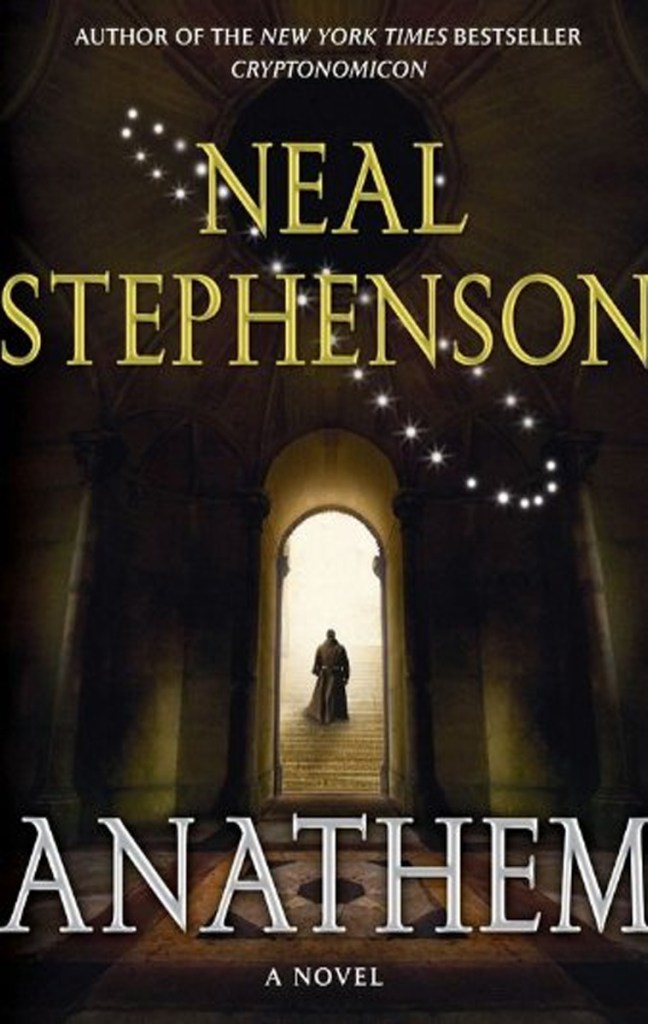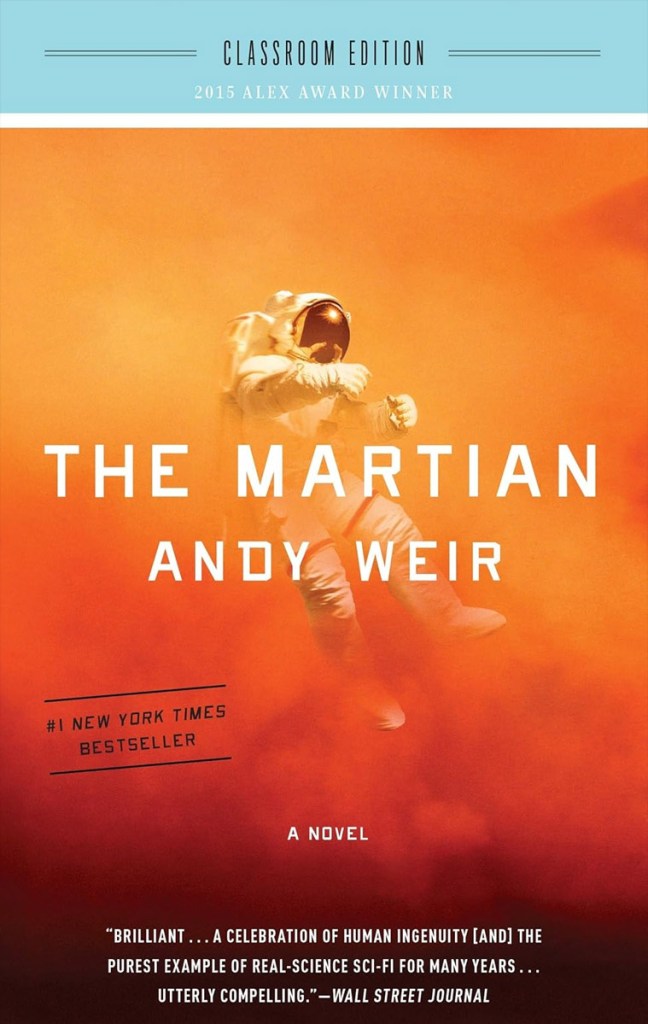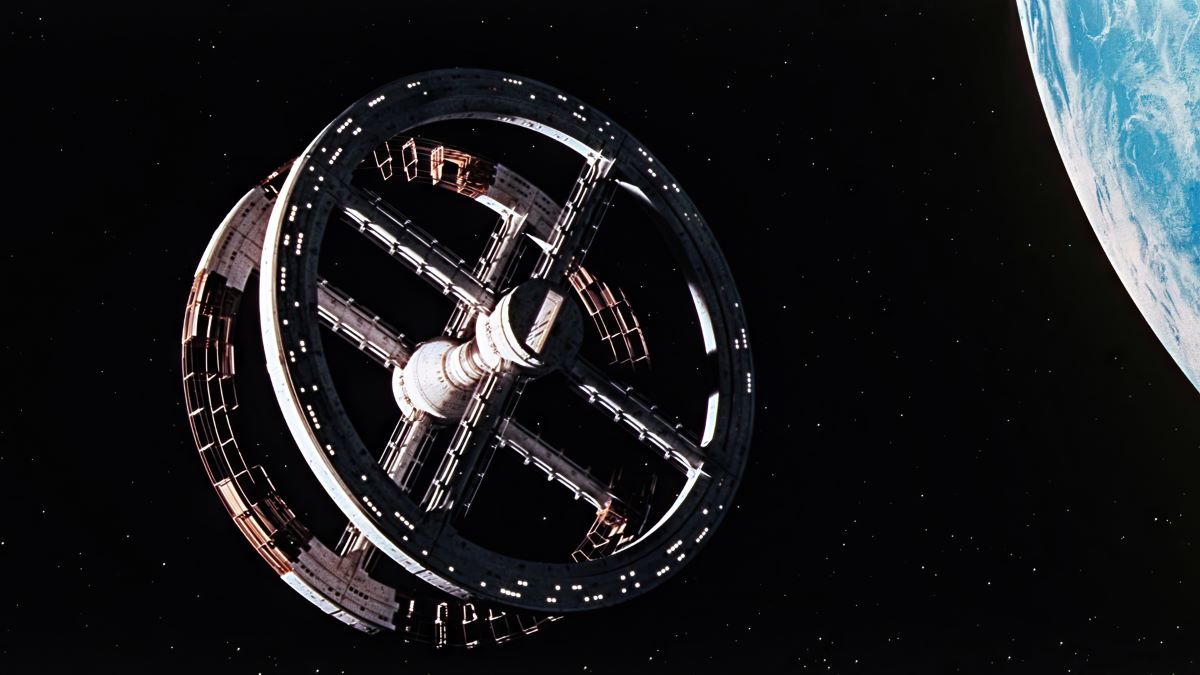Is there any better genre than science fiction? Reasonable people may disagree, but the answer is no.
Sci-fi novels take us out to the stars or force us to confront our pasts or lock us inside the dark cages of our minds. The best novels in the genre can change your life. Here are the 10 best sci-fi books of all time in chronological order.
The best sci-fi books of all times
Frankenstein – 1818

No “best of science fiction” list would be complete without the book that unofficially gave birth to the genre. Some people might not immediately associate the story of Frankenstein with sci-fi, but when you read Mary Shelley’s original novel, all the hallmarks of the genre are already there.
Frankenstein, or a Modern Prometheus, is basically the first speculative sci-fi novel all about how far some men are willing to go in order to pursue scientific discovery. It’s as prescient today as it was back in the 19th century.
While it might be easy to consider it a horror novel, the original text by Mary Shelley definitely veers more into the scientific and the implication of creating new life from the dead rather than towards shocking horror scenes or gore.
Dune – 1965

When you think of the term sci-fi epic, nothing fits the description better than the original novel by Frank Herbert. This is still a classic for a number of reasons. Dune is not just an action-packed sci-fi epic set on one of the most memorable alien planets in the entire genre.
It’s also a dense story about politics, religion, and intergenerational trauma. When his family is betrayed shortly after taking control of the desert planet Arrakis, Paul Atreides rises up against the planet’s imperial oppressors, but just because he saves Dune doesn’t mean Paul is really a hero.
While the cinematic adaptations could leave a bit to be desired, think of the ultra-weird David Lynch movie or the way too pedantic TV movie adaptation, the original novel still remains as powerful as the day it was published.
Anathem – 2008

In today’s sci-fi world, the epic is still going strong, and it is often hard to find a stand-alone book that can be enjoyed without having to dive into a 3000+ four-book epic. Anathem by Neal Stephenson is definitely one of them.
The young Fraa Erasmas has been living a separate life for decades, locked in a convent that was made to protect certain people, such as scientists and philosophers, from the corrupt world outside. Now, the convent is finally opening its doors, and Erasmas will have to face a new life, along with a planet on the brink of cataclysmic change.
This is a book made to challenge readers with the use of a new language and many uniquely creative ideas that will make it hard to put down. If you are looking for something different inside the sci-fi genre, Anathem will more than satisfy you.
The Left Hand of Darkness – 1969

There are few sci-fi authors as beloved as Ursula K. Le Guin. She could expertly shift between genres, and though she’s created some great sci-fi novels, she’s also responsible for the enthralling Earthsea fantasy series.
The Left Hand of Darkness tells the story of a human diplomat named Genly Ai, who’s sent to the planet Gethen to convince them to join his planet’s federation. Ai experiences extreme culture shock as the novel explores the utterly alien culture of the Gethen people.
Today, The Left Hand of Darkness is even more relevant for how it explored androgyny in science fiction for one of the first times in history. The author explores how sex and gender influence both culture and society.
Rendezvous with Rama – 1973

Speaking of one of the most influential sci-fi novels ever, Arthur C. Clarke is probably best known for writing 2001: A Space Odyssey, but honestly, any of his novels deserves a spot on this list. I’m particularly fond of Childhood’s End, a deeply haunting first-contact story like no other.
Still, Rendezvous with Rama might just be Clarke’s masterpiece. The book is set in the 22nd century and begins as a strange alien object enters the solar system. The crew of the Endeavour go to scout the object out, but they couldn’t be less prepared for what they discover.
It is the first book in the long Rama series that would span four books written by Clarks and Gentry Lee. The first book was also adapted into several video games, the most recent one being Sierra Entertainment’s 1996 point-and-click adventure Rama, which is every bit as weird as its source material.
The Martian – 2011

Going to Mars is definitely not a distant possibility and a faraway dream like it was described in many sci-fi books from the 60s and 70s. Indeed, the story that Andy Weir traces in The Martian is more down to earth (pun intended) than many others.
When Mark Watney became one of the first people to walk on Mars, he did not imagine he might also be the first one to die there. After an accident, Mark is alone on an unknown planet, with no way to contact Houston and get himself back.
It is a story of both technology and also how human beings react in the face of adversity. The Martian also explores our relationship with space travel and its many dangers and perils. While the novel is much more recent than many others on the list, it is already on the way to becoming a bonafide classic of the genre.
Kindred – 1979

Octavia E. Butler’s brilliant novel weaves together the world of 1970s Los Angeles and antebellum Maryland to explore themes of race, power, gender, and love.
The book follows a writer named Dana who finds herself shifting through time, stuck between life with her white husband in California and another life on a plantation with her enslaved ancestors. Dana is forced to confront a dark history while trying to find a way to stay locked in the present.
Through the juxtaposition of classic sci-fi tropes such as time travel, with more current topics of interracial couples and the way society feels towards different ethnicities, Kindred remains a current and important novel that is sure to spark intelligent discourse and debate.
The Hitchhiker’s Guide to the Galaxy – 1979

Not every sci-fi novel needs to take itself seriously to tell a great story. Douglas Adams’s The Hitchhiker’s Guide to the Galaxy is a tongue-in-cheek romp through a wildly imaginative version of outer space.
After Earth is destroyed for the construction of a hyperspace express route, surviving human Arthur Dent is thrust into the universe against his will. The novel’s world is rich with characters and exotic settings, and just about every page will have you laughing until you’re in tears.
If you are looking for a fun and light read, then the original book by Adams is a great place to start with. But if you liked his style, we are sure that you would also love its sequels, especially the continuation of Arthur Dent’s adventures in The Restaurant at the End of the Universe.
Neuromancer – 1984

Neuromancer is William Gibson’s debut novel and the book that really kicked off the cyberpunk subgenre. The story is set in a high-tech, low-life future where corporations control just about every aspect of modern life, and cyberspace cowboys are the stars of society’s criminal underbelly.
Everything that you might have seen from the classic cyberpunk vision, from The Matrix to the recent Cyberpunk 2077 game, was inspired by Gibson’ seminal novel.
Neuromancer elevates a typical heist plot into an enchanting tale about the birth of AI and how the past haunts people. Cyberpunk has never been more popular than it is today, but the genre’s also never been better than it was in Neuromancer.
Oryx and Crake – 2003

Margaret Atwood is a masterful writer whose contributions to fiction span multiple genres. Her best-known work, The Handmaid’s Tale, leans into some sci-fi tropes while telling what’s essentially an alternate history story, but Oryx and Crake dive headfirst into heavy sci-fi elements.
The book explores an Earth decimated by climate change and other apocalyptic catastrophes, but it’s as touching and human as anything Atwood has ever written. Proof that love can exist even in a place that is now a full bio-wasteland rather than the classic dystopic future.
With climate change and catastrophic events now being parts of our daily lives, Atwood’s novel resonates louder than ever before. We can only hope that someone is listening.
Which sci-fi book should I start with?
Sci-fi is a genre that can be a bit intimidating sometimes and even feel slightly dated if you just throw yourself into some classic books from the 50s. If you want to start with a classic that still has maintained intact its original power, we recommend Isaac Asimov’s Robot stories and Stanislav Lem’s Solaris.
While Asimov might feel a bit dated at times, the stories are all quick and to the point and will be a great way to see if you can be passionate about sci-fi. Solaris is also a quick and light read that will still leave you to ponder questions on humankind and their relationship with space and technology. If you find yourself loving them both, then you know you are on the right track.
Also, 1984 by George Orwell is also a great way to move your first steps into an unfamiliar genre since, even though at the time many of its concepts were new, with our society rapidly becoming more and more dystopic, you will feel right at home from the first few pages.
What are the most influential sci-fi novels of all time?
While many of his books haven’t aged as well as others in our list, Jules Verne is definitely one of the most influential authors of all time. He began writing sci-fi before the term was even a thing, imagining a future where human beings could travel fast underwater or in space.
Edgar Rice Burrows and HG Wells’ works are also authors that should definitely be considered highly influential. Again, it would be difficult to recommend something like The War of the Worlds today, and the overall scope of their novels is quite small compared to big universe builders such as Dune. Still, their role in shaping how science fiction became accepted cannot be diminished.
Still, despite Verne’s influence on early sci-fi cinema and many other authors, it’d be difficult to define any of his books today as cultural touchstones. In that regard, we believe 1984 definitely fits the bill, as inventing the modern concept of the dystopian future and many of its rules and its overall look. Neuromancer by William Gibson is also another novel that would be considered still today highly influential.
What’s the difference between the sci-fi and fantasy genre?
Often, the differences might be fewer than one thinks. In science fiction, often the author tries to apply our current understanding of the world and its technologies in order to predict their potential evolutions, along with its consequences and issues. It rarely goes beyond that.
In the fantasy genre, usually, there is no realistic viewpoint that the author uses as a base, since the fantasy genre often goes way beyond our present day, looking at ancient myths and classic roles, along with monsters and heroes that first debuted in the Dungeons & Dragons rulebook.
Overall, a good distinction between the two genres is that one is rooted in reality, while the other will often deviate from it and, instead, look somewhere else for its inspiration. But there are still plenty of exceptions to this.








